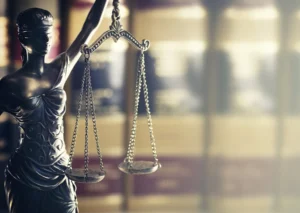Florida Motorcycle Accident Attorneys

Florida’s scenic byways and coastal roads are a motorcyclist’s paradise, but they can also be the setting for unforeseen accidents. When the asphalt’s thrill takes a tumultuous turn, understanding your rights and the pathway to justice is crucial. At Weston & Pape, we stand as beacons of expertise and support, ensuring that the aftermath of a motorcycle accident doesn’t leave you lost in legal intricacies. With a dedicated motorcycle accident lawyer by your side, navigating the complexities becomes smoother. To embark on this journey, get in touch with us at 407-537-6991 for a free consultation.
The Role of a Motorcycle Accident Lawyer in Florida
Florida’s sunlit highways, palm-lined streets, and scenic coastal routes create a dreamlike setting for motorcycle enthusiasts. The freedom of riding through open roads under blue skies offers a sense of exhilaration and independence that few other forms of travel can match. Yet, this same openness comes with a significant downside—motorcyclists are exposed and vulnerable in ways that other drivers are not. When accidents occur, the results are often devastating, with serious injuries, overwhelming medical bills, and lasting emotional trauma.
In the wake of such an accident, knowing what to do next can be overwhelming. The steps you take after a crash can have a profound impact on your health, financial recovery, and legal options. This is where a motorcycle accident lawyer plays a critical role—offering the legal guidance and support necessary to navigate the challenges ahead.
Let’s explore how having the right motorcycle accident attorney in Florida can make all the difference for injured riders and their families.
Comprehensive Understanding of Florida Motorcycle Law
Florida has unique traffic laws and insurance requirements when it comes to motorcycle riders. For instance, unlike car drivers, motorcyclists in Florida are not required to carry personal injury protection (PIP) insurance. This means motorcyclists do not benefit from no-fault insurance coverage and must seek compensation directly from the at-fault party in an accident.
Additionally, Florida law requires that riders under the age of 21 wear helmets. Riders over 21 may choose not to wear helmets if they carry at least $10,000 in medical insurance coverage. These rules—and how they are interpreted in court—can significantly impact a rider’s ability to recover compensation.
An experienced motorcycle accident lawyer understands these nuances. They can determine how helmet use, insurance coverage, and other legal details influence your case and develop a strategy accordingly. They can also anticipate how the opposing side might attempt to place blame on you, and proactively protect your rights from being diminished due to misapplied laws or incorrect assumptions about fault.
Thorough and Strategic Evidence Collection
One of the most important roles a motorcycle accident lawyer plays is in gathering and preserving critical evidence. Proving liability in a motorcycle crash often requires more than just an accident report. Motorcycle accidents are frequently caused by distracted or negligent drivers who fail to see motorcyclists due to their smaller size or overlook them while changing lanes or turning left.
Your attorney will know exactly what kind of evidence is needed to support your claim, including:
-
Police accident reports
-
Photographs of the scene
-
Dash cam or surveillance footage
-
Eyewitness statements
-
Expert accident reconstruction
-
Medical records and treatment reports
Time is of the essence after an accident, as certain types of evidence can quickly be lost or degraded. By hiring a motorcycle accident lawyer early in the process, you ensure that no detail is overlooked, and you build a strong case from the outset.
Evaluating the Full Extent of Your Damages
In many motorcycle accidents, the injuries sustained can be severe or even life-threatening. Broken bones, traumatic brain injuries, spinal cord damage, road rash, and internal injuries are all too common. These injuries often require ongoing medical care, extended periods of rehabilitation, and may lead to permanent disabilities.
A motorcycle accident lawyer will not only consider your current medical bills, but also anticipate:
-
Future medical expenses
-
Long-term rehabilitation or physical therapy
-
Home modifications or assistive devices
-
Lost wages and future earning potential
-
Mental health care and emotional trauma
-
Pain and suffering
-
Loss of enjoyment of life
These damages are not always easy to quantify without experience. A seasoned attorney works with medical professionals, vocational experts, and financial analysts to create a comprehensive picture of your losses, ensuring that your compensation claim reflects the full scope of your injury—not just your initial hospital stay.
Navigating the Insurance Claims Process
Dealing with insurance companies after a motorcycle accident can be one of the most frustrating and stressful aspects of the recovery process. Insurance adjusters may appear sympathetic, but their main priority is to limit the amount of money the company has to pay. They may offer a quick settlement that seems fair on the surface but doesn’t account for future costs or non-economic damages.
A motorcycle accident attorney serves as your advocate during all insurance negotiations, ensuring that:
-
Your rights are protected
-
You are not pressured into accepting a low settlement
-
All communication with insurers goes through your attorney
-
You avoid saying anything that could be used against you
Whether you’re dealing with your own insurer or that of the at-fault party, your lawyer will handle the red tape and fine print, allowing you to focus on recovery while they focus on your financial compensation.
Litigation and Court Representation
While many motorcycle accident cases are resolved through negotiation and settlement, some require litigation to achieve a just outcome. If your case goes to trial, having a skilled motorcycle accident attorney is invaluable.
Your lawyer will prepare all court filings, present evidence, cross-examine witnesses, and argue your case before a judge or jury. Their courtroom experience and legal strategy can make the difference between winning or losing your case—and between receiving minimal compensation or a substantial verdict.
Insurance companies are more likely to take your claim seriously and offer fair settlements when they know you’re represented by a lawyer willing and able to go to court.
Providing Emotional and Moral Support
In addition to legal representation, motorcycle accident lawyers often become a source of emotional and moral support for their clients. They understand the psychological toll an accident can take—from post-traumatic stress and anxiety to depression and grief. A good lawyer listens, cares, and walks with you through every step of your recovery journey.
This human element should not be underestimated. Knowing that someone is fighting for your rights and looking out for your best interests can provide a sense of relief and security during one of the most difficult times in your life.
Contingency Fee Representation: No Win, No Fee
One of the main reasons people hesitate to hire a lawyer is the fear of added financial burden. Fortunately, most motorcycle accident lawyers in Florida work on a contingency fee basis, meaning you don’t pay any upfront legal fees. Your attorney only gets paid if they secure a settlement or verdict in your favor.
This arrangement levels the playing field, giving you access to high-quality legal representation regardless of your current financial situation. It also aligns your attorney’s interests with your own—they are incentivized to pursue the maximum compensation possible for your injuries and losses.
Why Legal Help Matters More for Motorcyclists
Motorcyclists are often unfairly stereotyped as reckless or dangerous, which can lead to bias in insurance negotiations and courtrooms. A knowledgeable lawyer knows how to combat this prejudice by presenting clear facts, evidence, and testimony that focus on the reality of your accident and the extent of your injuries.
Furthermore, Florida’s comparative fault system allows your compensation to be reduced if you are found partially at fault for the accident. If you are deemed more than 50% at fault under current laws, you may be barred from recovering damages altogether. A lawyer’s job is to minimize your fault percentage and fight back against claims that seek to shift blame onto you unfairly.
Empowering Your Recovery with the Right Legal Partner
Recovering from a motorcycle accident in Florida can be physically, emotionally, and financially draining. But you don’t have to face the journey alone. A motorcycle accident lawyer can help you rebuild your life, protect your rights, and hold negligent parties accountable.
From understanding the intricacies of Florida law and calculating damages to negotiating with insurers and representing you in court, the right attorney can be a powerful ally. If you or someone you love has been involved in a motorcycle accident, don’t delay. Consult with a qualified Florida motorcycle accident lawyer to explore your legal options and begin your path to justice and full compensation.
The Timeline of Your Claim: What to Expect
The thrill of a motorcycle ride through Florida’s scenic routes can sometimes be marred by the unforeseen reality of accidents. While the immediate aftermath is a whirlwind of emotions, medical concerns, and practicalities, it’s essential to understand the timeline that follows. Navigating the legal path post-accident can seem complex, but with a clear roadmap, you can move towards justice and compensation with confidence. Here’s a step-by-step breakdown of what typically follows a motorcycle accident in the Sunshine State.
The Immediate Aftermath
Call 911 immediately to report the accident. Emergency services will dispatch police officers, paramedics, and, if necessary, fire personnel to the scene. Law enforcement will create an official accident report, which will later serve as a crucial piece of evidence if you decide to pursue a personal injury claim.
It’s critical to seek medical attention, even if your injuries seem minor or you believe you were unscathed. Some injuries, particularly soft tissue damage or internal injuries, may not present symptoms right away. A prompt medical evaluation will not only ensure your well-being but will also help create a formal record linking your injuries to the accident—an essential element for future legal or insurance claims.
Early Documentation
In the hours and days following the accident, early documentation is key. Try to collect as much information from the accident scene as possible before it is cleared. This includes taking photographs of your motorcycle, the other vehicle(s) involved, roadway conditions, skid marks, traffic signals, and visible injuries. These images can provide context and help establish liability later on.
Obtain contact details for anyone involved in the accident, including drivers, passengers, and especially witnesses. Independent witnesses can provide impartial accounts of what occurred and may prove instrumental if the other driver disputes fault.
You should also notify your insurance company about the accident in a timely manner. While it’s important to report the incident, be cautious when speaking with adjusters. Avoid making any statements that could be interpreted as accepting blame or minimizing your injuries. It’s often best to speak to an attorney first, especially if the circumstances of the crash are complex.
Legal Consultation
If you’ve been injured or your motorcycle has been significantly damaged, consider consulting with an experienced motorcycle accident lawyer as soon as possible. A qualified attorney can assess the details of your case and advise you on your rights and potential next steps. Legal counsel is especially important if liability is unclear, the insurance company is disputing your claim, or you are facing significant medical bills and lost income.
An attorney can help you understand what types of compensation you may be entitled to, such as medical expenses, lost wages, pain and suffering, and property damage. They can also take over communication with the insurance companies, so you don’t inadvertently say something that could harm your case.
Investigation and Treatment
Once retained, your attorney will begin a thorough investigation to build your case. This process often includes returning to the accident scene to gather evidence that may have been missed, locating and interviewing witnesses, reviewing police reports, and requesting surveillance footage if available. Your lawyer may also consult with accident reconstruction experts or medical professionals to better understand the cause of the crash and the full extent of your injuries.
During this time, you should continue to follow all medical advice and attend all scheduled appointments. Your treatment plan may include visits to specialists, physical therapy, surgeries, and ongoing pain management. Keeping a detailed record of your treatments, medications, and how your injuries affect your daily life can significantly strengthen your case and help justify the compensation you’re seeking.
Negotiation with Insurance Companies
After the investigation has been completed and you’ve reached what doctors refer to as maximum medical improvement (MMI), your attorney will prepare a demand letter. This letter will outline the facts of the accident, your injuries, treatments, damages, and the amount of compensation being sought from the at-fault party’s insurance company.
The negotiation process that follows can be lengthy. Insurance companies may initially offer a low settlement in hopes you will accept quickly. Your lawyer will review these offers and negotiate aggressively to reach a fair resolution. The goal during this phase is to settle your case without having to file a lawsuit, saving you time and stress. However, if the insurer fails to make a reasonable offer, litigation may become necessary.
Filing a Lawsuit
When settlement negotiations stall or the insurance company refuses to take your claim seriously, your lawyer may advise you to file a personal injury lawsuit. Filing a lawsuit sends a strong message that you are prepared to pursue full compensation through the court system.
In Florida, the statute of limitations for motorcycle accident claims is typically four years from the date of the accident. This means you must file a lawsuit within that timeframe or risk forfeiting your right to compensation. However, it’s often beneficial to start the legal process well before the deadline to ensure evidence is preserved and witnesses remain available.
Discovery and Mediation
Once a lawsuit is filed, both sides enter the discovery phase. During this stage, each party shares information, evidence, and documentation related to the case. This may include interrogatories (written questions), requests for documents, and depositions (sworn testimony). Discovery helps both sides fully understand the strengths and weaknesses of each other’s case.
After discovery, the court may encourage or require both parties to participate in mediation. Mediation involves a neutral third-party mediator who helps facilitate a discussion between you and the defendant (usually the insurance company), with the aim of reaching a mutually acceptable settlement. Many cases are resolved during mediation, avoiding the need for trial.
Going to Trial
If mediation fails to produce a resolution, the case will move forward to trial. In a motorcycle accident trial, your attorney will present evidence, call expert witnesses, cross-examine the opposing side’s witnesses, and argue your case before a judge or jury.
Although most motorcycle accident cases settle out of court, it’s important to be prepared for trial and to work with a lawyer who has courtroom experience. Trials can be unpredictable, but they also offer an opportunity to receive a potentially higher verdict than what was offered during negotiations. The court’s decision could include compensation for both economic and non-economic damages, including pain and suffering and loss of quality of life.
Post-Trial and Collection
If the jury or judge awards a verdict in your favor, the final phase is collection of the judgment. Sometimes, this is a straightforward process handled by the defendant’s insurance company. In other cases, especially if the at-fault party is underinsured or lacks sufficient assets, collecting what you’re owed can be more complex.
Your attorney may need to pursue additional legal actions such as garnishing wages, placing liens on property, or working with the court to enforce payment. Florida also has procedures in place to help victims collect judgments, though this can take time and effort depending on the circumstances.
Reach Out to a Florida Motorcycle Accident Attorney
In the complex tapestry of Florida’s legal landscape, motorcycle accident claims can often appear as intricate and winding paths. However, with the right navigator, even the most challenging routes become manageable. At Weston & Pape, we pride ourselves on being that guiding light, illuminating every twist and turn in your quest for justice. If you or a loved one find yourself at the crossroads of injury and claim, remember that expert guidance is just a call away. We invite you to reach out for a free consultation by calling 407-537-6991 and ensure your journey is backed by experience, dedication, and unwavering support.



 Call Us Today - It's Free
Call Us Today - It's Free